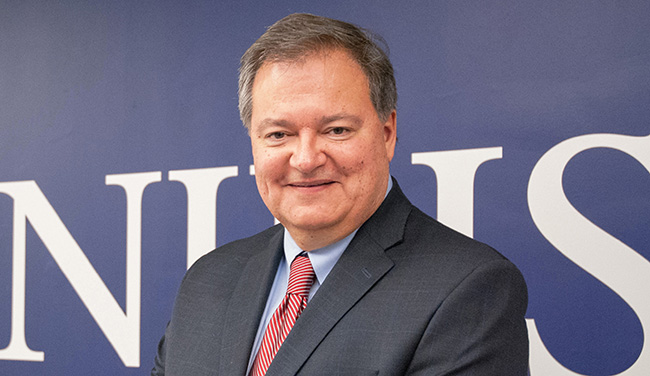Nipissing University President to shape National Reconciliation Council

By Kelly Anne Smith
NORTH BAY – Nipissing University President and Vice-Chancellor Dr. Mike DeGagné has been appointed to form Canada’s new National Council on Reconciliation.
A citizen of Animakee Wa Zhing, DeGagné headed the Aboriginal Healing Foundation for 15 years addressing truth, reconciliation and residential schools.
From 1880 to 1996, over 150,000 children were sent to the Indian Residential School system with at least 6000 children dying away from their families.
The summary report of the Truth and Reconciliation Commission (TRC) called the Indian Residential School system, “…An integral part of a conscious policy of cultural genocide.” Many Indigenous people continue to suffer as a result of intergenerational trauma.
DeGagné says the TRC was not the first one to come up with recommendations on reconciliation. “If we go back to the Royal Commission on Aboriginal People twenty years ago, that was essentially a call to action around a new way of thinking between Indigenous and non-Indigenous people in Canada. And now the TRC did a lot of reinforcing.”
The Aboriginal Healing Foundation was formed in the late 90s to provide resources promoting reconciliation and to support Indigenous people through the legacy of physical, sexual, mental, cultural, and spiritual abuses in the residential school system.
“There were so many positive things that came out of that, and so many opportunities for the future to do other things.”
DeGagné didn’t expect to be part of the National Reconciliation Council and now looks forward to the work. “There is a lot to do in six months. We are tasked to come up with a set of conditions where we can start a National Council on Reconciliation. For the interim work that were doing in the next months, most of what we talk about will be what the broad objectives are for the National Reconciliation Council and what structures in terms of reference might look like.”
DeGagne is enthusiastic about the impact the National Reconciliation Council will have. “I think in an ongoing way the Council itself, once it gets itself established, and works over the course of many years, will have the chance to talk to lots of Canadians.”
And not just to sort of set up a report card about the TRC saying ‘are you doing what you are supposed’ to be doing but in a way to help people put the calls to action in place and to talk in a wider way about what reconciliation is and what it means to everyone.”
DeGagné says the word reconciliation can have different meanings. “We expect reconciliation means that we are going to be partners. We are all going to be accountable to each other and have a wonderful shared history. You know what? I don’t think that’s possible for every person in Canada.”
Maybe for some people who don’t care much about Indigenous issues and say ‘those people get more than everyone else already’, maybe the best we can do is to help them have a glimmer of understanding or at least stop criticizing the process. And then we can move everybody towards reconciliation. For some that might mean real engagement, for others, it might be to remain quiet.”c
A National Residential School Crisis Line provides support to former students and can be reached at 1-866-925-4419, anytime.


